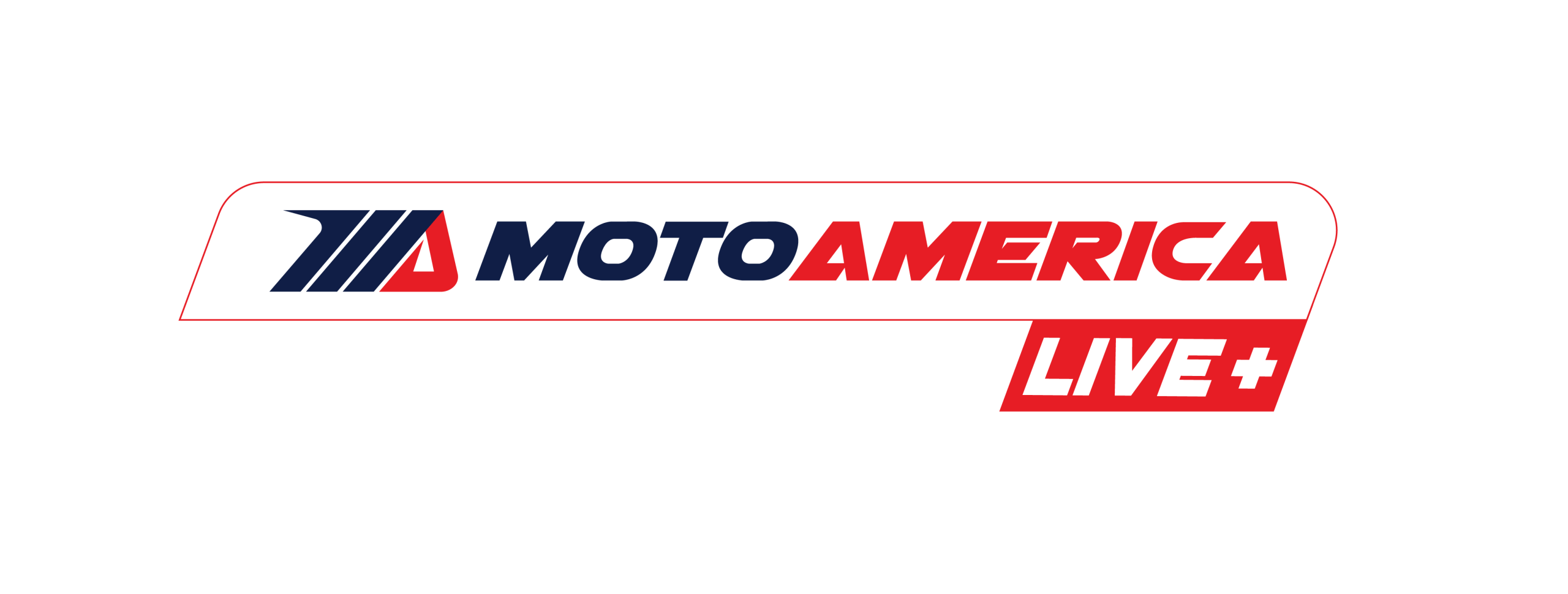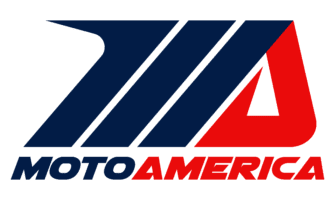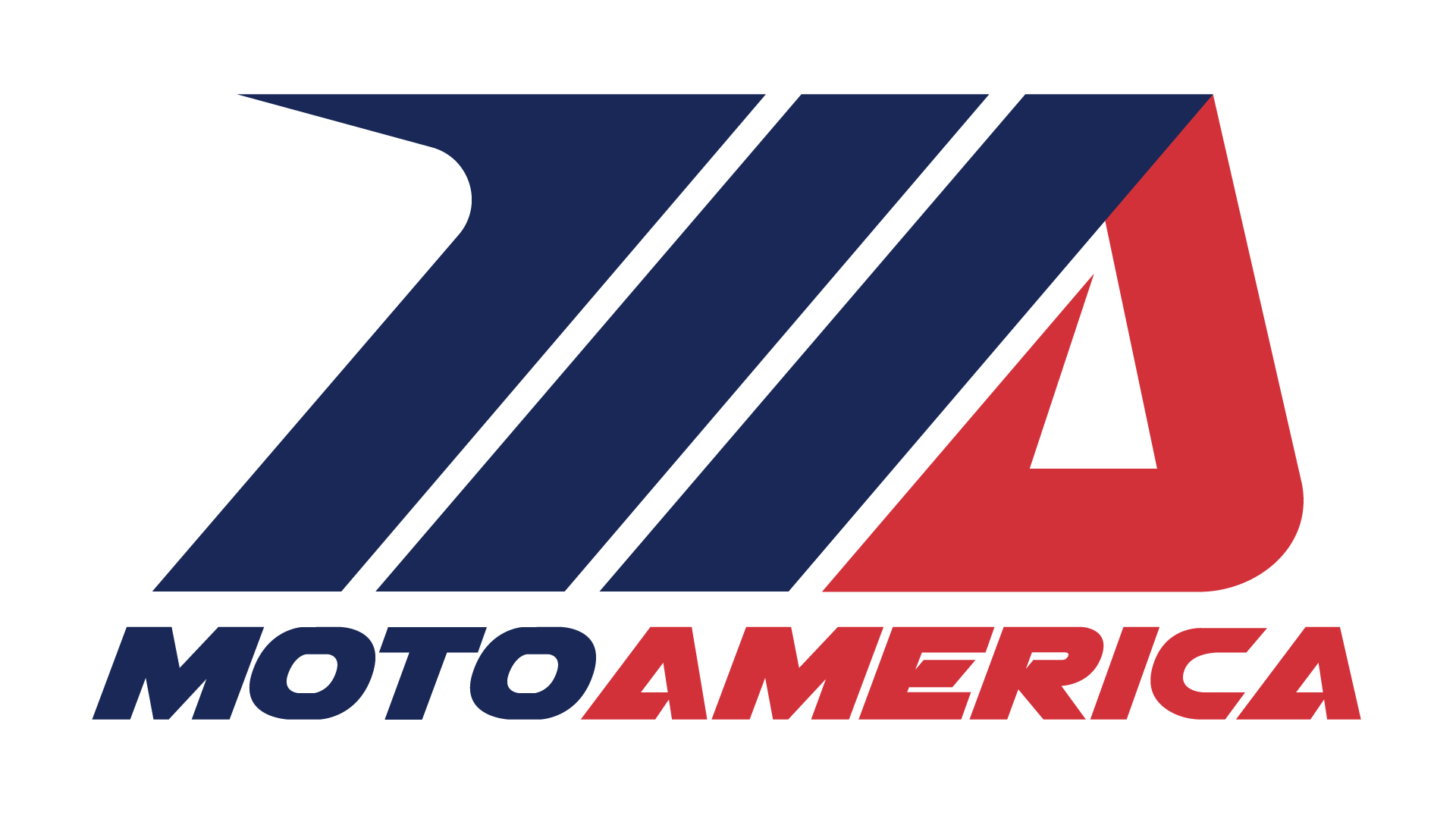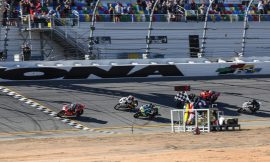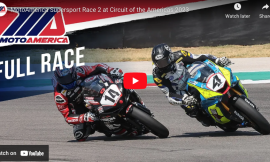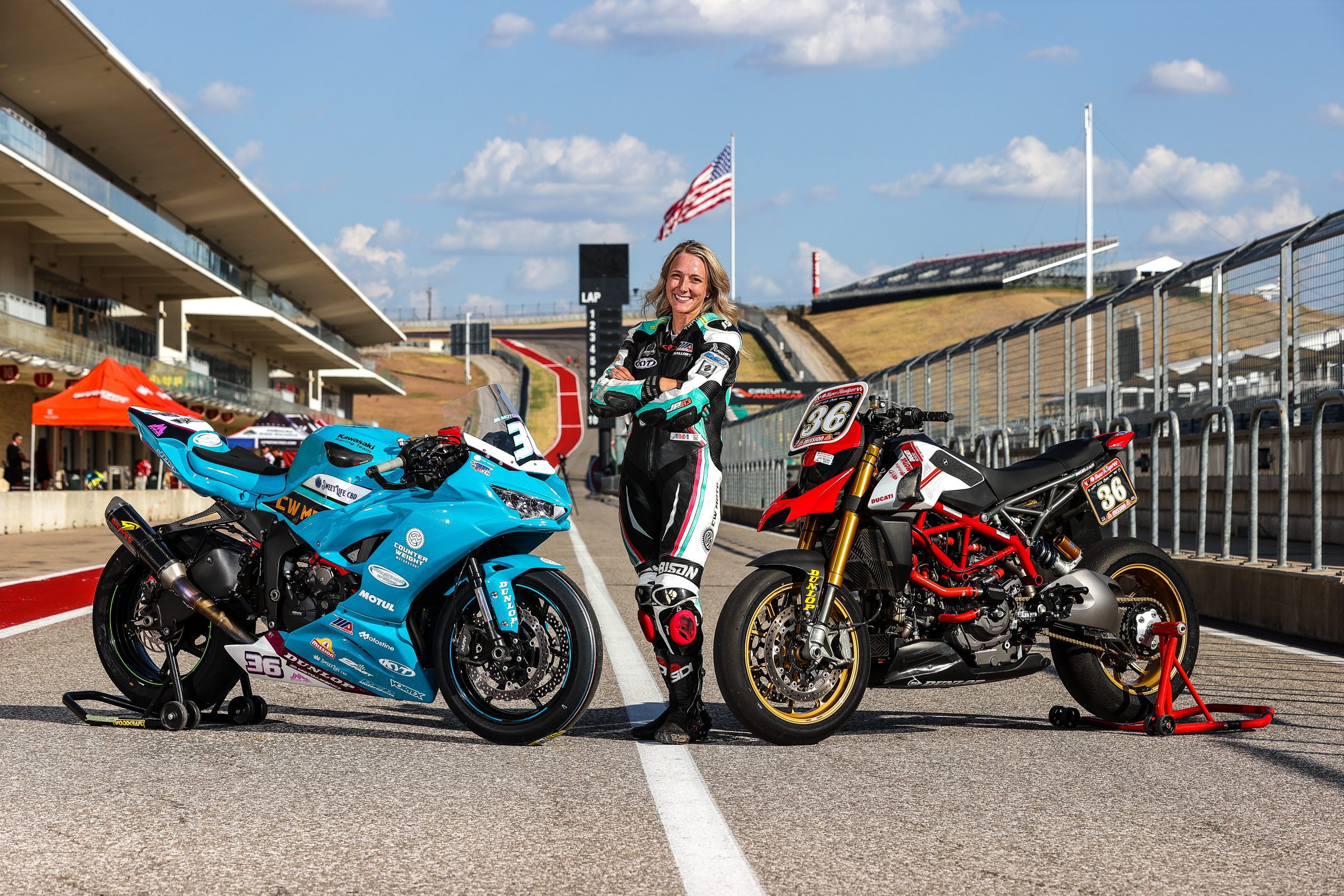
Mallory Dobbs had a very busy 2023 MotoAmerica season. The Olympia, Washington, resident competed in both Supersport and the Mission Super Hooligan National Championship. The year prior, she dipped her toe in professional motorcycle road racing for the first time when she competed in one MotoAmerica round, which was at Ridge Motorsports Park, her home track.
Now, not even two years after her MotoAmerica debut, she is going to compete in a motorcycle road racing World Championship.
While Dobbs prepares for the upcoming season, we had a chance to learn more about her in this in-depth interview:
Q:
Mallory, I think it was 2022 when I first met you at Ridge Motorsports Park, right?
Dobbs:
Yes, 2022. It was my very first MotoAmerica round.
Q:
I go through the entry lists for each round, and I spotted your name, so I made a point of coming around and saying hello to you. From that moment on, I was pretty taken with you for a lot of reasons. I loved the fact that you were already an accomplished racer in the Pacific Northwest, but it was your first foray into MotoAmerica. It was Supersport, right?
Dobbs:
Yup.
Q:
Let’s talk about where it all started with you riding motorcycles, and then racing. Did you get a later start than some riders?
Dobbs:
I didn’t actually start riding motorcycles at all until 2016. In 2016, I had a boyfriend who bought a bike. He bought a CBR600. I rode on the back of it for a couple months, and I hated it, so I bought my own bike. Rode for about six months on the street. I met a couple friends in college who were doing track days and stuff locally, because the Ridge is my local track. So, I went out there and just kind of met some people. They were like, “Yeah, for $200 or whatever you can come out here and ride all day.” I was like, “Oh, my gosh. This sounds like the coolest thing ever.” So, I bought all the gear, got all the stuff put together. I rode my street bike, my ’07 Yamaha YZF-R6S. Brought my street bike out to the first track day. Took it out there with my dad’s… This story is always my favorite, because I took it out there with my dad’s Dodge 3500 lifted, huge truck, with an enclosed car trailer. Like an 8-foot by 20-foot enclosed car trailer with my one motorcycle in it. Because I wanted to be able to get it out on my own. I didn’t know what it was like to go to a track day. Like, “I need help because I can’t unload this out of this really tall truck.” So, I showed up and I actually met some people who wanted to make a trip down to Thunderhill (Raceway Park in California), and were like, “You have the perfect rig for us going down to Thunderhill. You should come.” I was like, “Uh, okay.”
Q:
Not only you should come, but “Let’s use your vehicle.” Is that what it was?
Dobbs:
Yeah. I’m still friends with her. Her name is Emily, and she was 16 at the time, or 15 at the time. She walked up and she’s like, “Hi, I’m Emily!” She’s like, “Will you come to Thunderhill with us?” I’m like, “You just want me for my trailer.” She’s like, “No.” I’m like, “Okay.” So, we went down there, and I did a couple more track days that summer and then early into March. They all kind of motivated me to get a race bike. We started a race team called Hobbit Racing. It was basically just a bunch of novices. Our goal was really to teach us, but also to teach other novices and bring people as a welcoming group of people and really just have a cool, family environment at the racetrack. So, I raced in 2017 with WMRRA up here in Washington. Did some stuff down in Oregon with OMRRA as well. Really just did the club racing thing for a while. I was just doing it for fun and didn’t really have any motivation to do anything big with it at that time. I was kind of like, it’s fun to hang out with my friends on the weekends and race motorcycles. Then MotoAmerica came to Ridge in 2020. I was like, “You know, it would be really cool to go to a national event. I think I could do that.” So, I got coaching from Jason Pridmore and paid a lot more money and bought a new bike. There are a lot of stories in there, but I ended up getting an all-new program and putting it together and then doing my first MotoAmerica round in 2022 at Ridge.
Q:
Your path into motorcycle road racing is very similar to the way Melissa Paris got involved. She had a boyfriend in Southern California, and she rode around on the back of his bike, but she clearly didn’t want to do that, either.
Dobbs:
I feel like there are a lot of stories like that. Women, especially.
Q:
It’s got to be hard to ride passenger, anyway, because you’re not in control of the situation, but also, it’s a lot more fun to be up in the front instead of riding in the back.
Dobbs:
Oh, yeah. Growing up, my dad taught me a lot. I learned a lot about working on cars and rebuilding things and just kind of tinkering on old classic cars and things like that. I did some drag racing a little bit when I was younger with my dad. So, it wasn’t like I was outside the realm of the whole motorsports thing. We rode quads and we did some other stuff outside of motorcycles, but none of my family was into motorcycles.
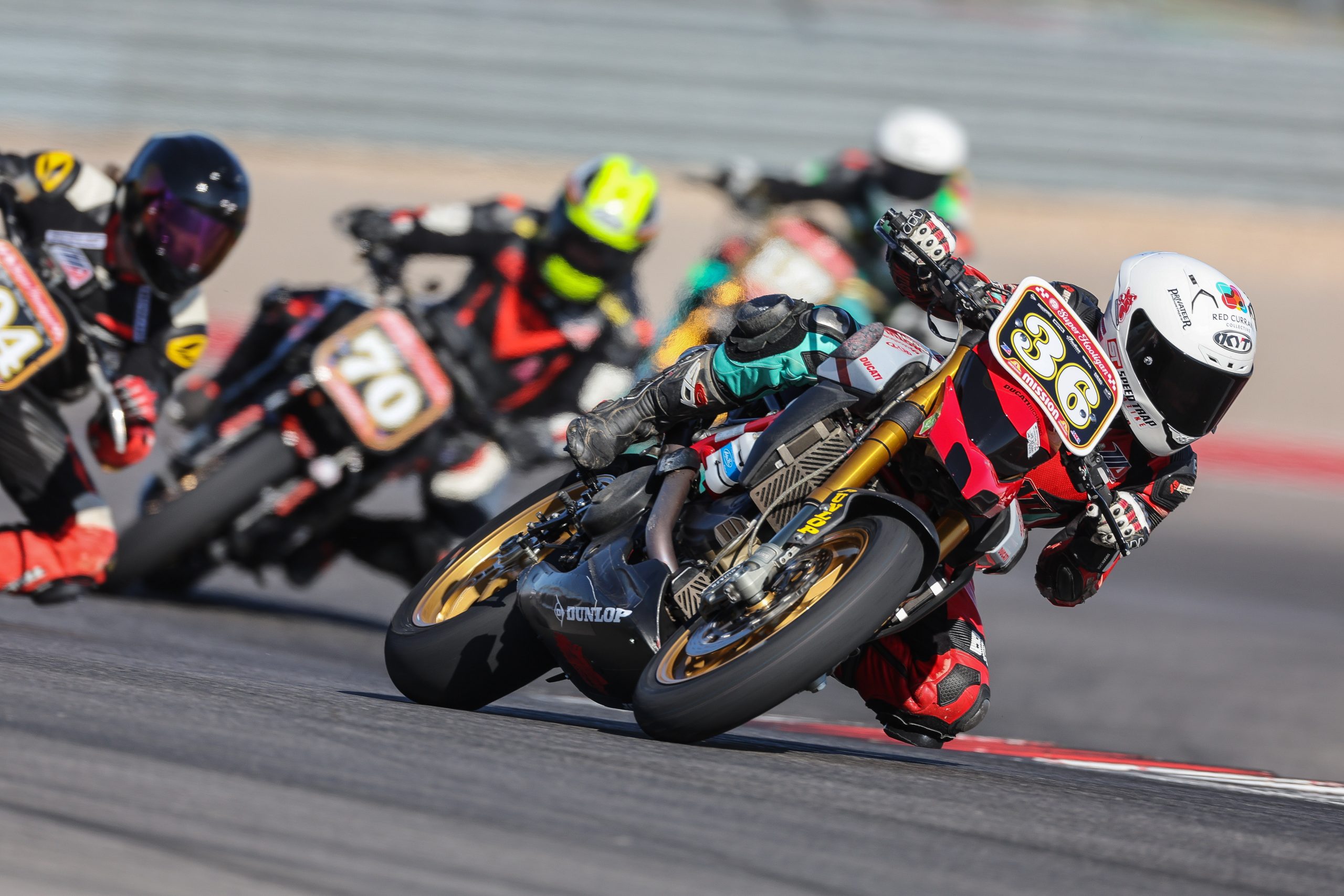
Q:
What is it about motorcycle road racing for you? What is the attraction?
Dobbs:
I think I just love the challenge. I grew up showing horses. I showed all locally around the area, and then I showed at the national level at horse competitions and stuff, in Tulsa, Oklahoma. I think, for me, it is a challenge. It is something outside of the norm. I really do like the breaking the barriers kind of stuff. With MotoAmerica this past season, what brought me a lot of joy and passion was hearing other people’s stories and having messages from people that said, “You motivated me to pursue my passions,” whatever those are, whether it’s motorsports-related or not. But there’s a lot of people who get discouraged to not do what they want to do because they just feel like it’s not the norm, or it’s too hard, or whatever the reason may be. I want to motivate them to just do whatever that is. Seeing the little girls at MotoAmerica just light up when I’m like, “I’m a racer.” They’re like, “Oh, my goodness!” Even for kids. They’re walking around the pits and if I’m not in my leathers, they don’t even think that I’m a racer or a rider. It’s just really motivating doing that stuff. Obviously, I’m very competitive. I want to do well. I want to see how far I can take this, because at this point, I want to prove it to myself, and I want to prove it to other people, too. I just want to have fun and get those experiences in, but also underlying that is, I really love to just motivate others and be a role model.
Q:
I grew up in the Northeast in upper New York State where it’s really cold. I skied a little bit but until later on in my teenage years. I wasn’t very good at it. Once I got to the double-diamond or even the diamond slopes, I was like, “This is intimidating for me.” I didn’t enjoy it, so I stopped doing it. A lot of times, people don’t enjoy something because they’re not good at it. With you, you obviously had an aptitude for riding motorcycles to start with, I would think, because you felt like, “I’m actually kind of good at this, and I enjoy it, so I should keep going.” Would that be a fair assessment?
Dobbs:
I don’t know. You talk to people about when I started racing and what I was like then, and I don’t know. Some people say I’m a really fast learner and I really do apply things really quickly, so I’d say that. I’m a quick learner. But when I first started, I wouldn’t say I was super-talented right off the bat. But I’m not one who doesn’t like to push my boundaries and push the limits. Even when I did my first couple of track days, people were like, “This is only your second track day? You’re doing really good.” I was like, “Am I? I’m still really slow.” That’s just the way my brain works because I’m like, I could be doing better. I don’t know that it was like all of a sudden, I was like this amazing thing, and I’m trying really hard.
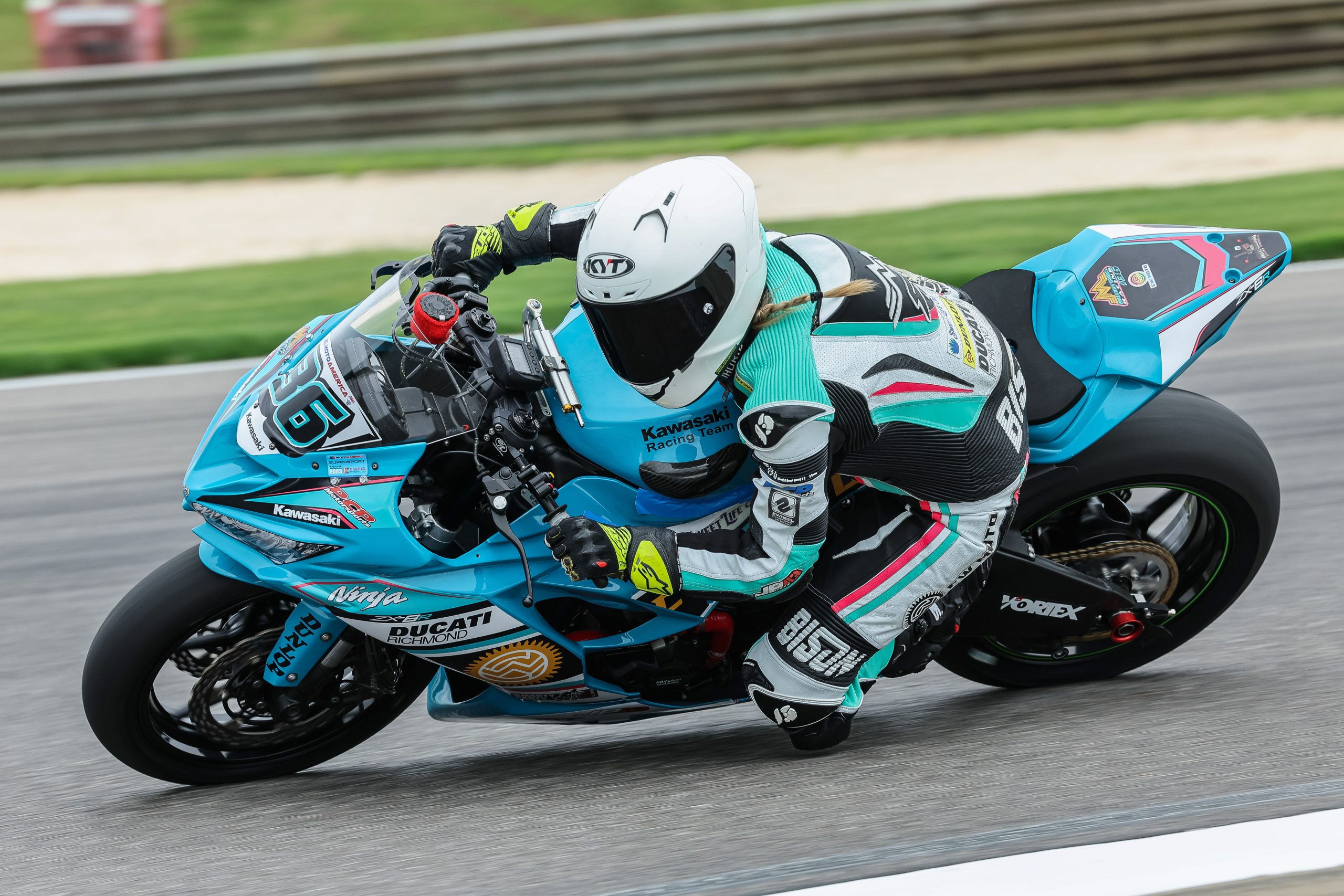
Q:
What do you think about this concept? Cory Ventura once told me you want to be in a class that’s made up of riders who are better than you because it actually makes you better to have that higher level of competition. You didn’t do Junior Cup with us. Instead, you made your MotoAmerica debut in Supersport. You went right to what is arguably one of the most competitive classes in our series.
Dobbs:
Yeah. I started on a 600 when I started riding, and then I started racing 600s. That’s always just kind of where I’ve been, so that was the class I wanted to race in. I think I was top three or top five most of the time at our local club events. So, it was like, I’m in the front of the pack. I’m chasing down podiums, pretty much consistently. But, when I made my MotoAmerica debut, I started racing against the best riders in the country. Your room for growth is so much higher than what you have at a club race, and it’s very humbling. Going from amateur or novice to expert. That jump is just so big. That definitely makes you a better rider. There’s more talent. There are more stories. There are more people talking to you about x, y, z. There’s just so much more stuff in the paddock and around the area to help you get to that extra level, if you want it.
Q:
What you do for a living?
Dobbs:
I am a project manager for a civil engineering company. We do land development.
Q:
It sounds like you have a college degree.
Dobbs:
I do. I have a bachelor’s in civil engineering, and then I have my professional engineering license here in Washington State.
Q:
I know project managers sometimes have a lot of these weird acronyms related to project management after their names. Do you have that?
Dobbs:
No, not really. After my name, I have P.E., which stands for “Professional Engineer.” That’s it. As far as project management goes, I don’t have any actual certifications or anything for that. I’m really an engineer. Project management is my title now because I do a lot to help win the projects and bring them into the company and then manage the client and deal with any sort of sub-consultants who do other work for us.
But I’m still acting as an engineer even though I’m a project manager. I’m still doing design work and all the back-end CAD work. Plus, a lot of overseeing and reviewing and stamping the plans for the designs. I am legally bound to my drawings if I stamp them with my name, and I write my signature that says they are going to keep the public safe and they’re good for the people, and the plans are good, and all those things. Legally, I’m equal to an attorney or a doctor, but it’s for buildings.
Q:
OK, I’m going to throw this one at you. This was a long time ago. My guidance counselor in high school had these three categories that helped us define our career aspirations. It was data, people, or things. What are you better at? I always knew I was more “people” and maybe a little bit of “things.” Definitely not “data.” I’m horrible with math. My dad was a mechanical engineer. As much as I appreciate and respect people in engineering like you, I can’t do it to save my life. So, I’m definitely not “data.” It sounds like of those three things, you probably have a pretty good balance of all three of them. You’re well-spoken and you present well. Obviously in your job now, you have a lot of contact with customers and clients, right?
Dobbs:
Yeah. The reason I got into engineering was because I was good at math and science, and I really enjoyed math. Then I wanted to get a job that would make me a decent amount of money, and that’s how I landed on engineering. So, “data” was a really good thing, but then, for the “people” aspect, I’ve always been an extrovert. I’ve always loved to talk to people. So that’s something that definitely helps me with the project management aspect of my job. Then, I’m kind of a hobbyist and love to do just all sorts of things, other aspects in life. Whenever I tell people I’m an engineer, they get kind of like, “Oh, really?” They’re very shocked. I’m like, “For what reason are you shocked? Because I can talk to people? Because I’m not awkward?”
Q:
We know there are a ton of engineers in the paddock. Matt Spicer with Robem Engineering, Steve Scheibe with Scheibe Racing. There’s also Chloe Lerin. And I just found out that Sonya Lloyd is in school right now for bioengineering. There are a lot of very smart people in our paddock. It’s kind of cool because, as you know, there’s still a little bit of a stigma about motorcycles and maybe even motorcycle racing, but there are a lot of very cerebral people who are involved in the sport. It’s a thinking-person’s sport. Wouldn’t you agree?
Dobbs:
Yeah.
Q:
Tell me in what ways, with your engineering, do you get into the nitty-gritty of motorcycle road racing? Anything with suspension setup or geometry of the bike or electronics, or any of that kind of stuff?
Dobbs:
Not really. It’s funny. As much as I’m a “data” person, I’m not a very analytical rider. So, when it comes to my riding and setup and stuff, I’m very much a ride-by-feel kind of person. Which is why I think Jason Pridmore and I get along really well, as far as him being my coach. He and I can communicate on a level where everything makes sense, and he I understand each other very well. That’s who I am as a motorcycle racer, which is so funny because it’s the very opposite of who I am as a career-driven adult.
Q:
Also, a lot of people who can ride or race can’t necessarily teach it. JP is obviously an exception to that. Josh Hayes is, too, and there are a lot of other people. But some racers, they just can’t tell you what they’re doing, or they can’t explain it in words. What do you have in your personality or repertoire that makes you able to teach others?
Dobbs:
I coach with TooFast, currently, and I help JP out from time to time a little bit, but we’re still working on that. But I think I’ve always had a passion to teach other people. Growing up, I was a math tutor in high school and in college. I gave horse-riding lessons to kids. I showed horses since I was ten and did that for a really long time. My passion can be to also teach other people what I know and to share that knowledge. So, I think because I love communicating and love helping out and just trying to motivate others to do the same cool stuff is part of the reason why. It makes me a better rider or a better teacher, whatever it may be. If I can sit and try to teach somebody how to understand an apex and what that means and bike direction, it makes me think about what I do on the track a little bit more. Then, I can understand what I need to do to improve on what I’m already doing.
Q:
That makes perfect sense. Kenny Roberts grew up in Modesto, California. Very much out in the country. And they had horses. When he was younger, he thought he was going to be a jockey. You’ve talked about your involvement with horses. I always wondered if one of the things that made Kenny so talented was that he rode horses. I know it’s different, but in some ways maybe it’s the same. Can you equate riding horses to riding or racing a motorcycle?
Dobbs:
The biggest thing that sticks out to me is looking where you want to go. That applies to both horses and motorcycles. So, there’s the vision aspect. There are a couple things here and there. Riding an animal with a brain of its own is a lot different than riding a motorcycle that just does what you tell it to do. But it’s funny. I’ve found that a lot of people who race motorcycles also have a horse background, or a farm background.
Q:
I didn’t grow up on a farm, but I worked on a dairy farm growing up, and we had bikes. We used to go get the cows with the bikes. I know Shelina Moreda has talked about that a lot, too. On her family’s dairy farm, she would do the same thing.
Last year, what led to you racing in Supersport but also to competing in the Mission Super Hooligan National Championship?
Dobbs:
I had talked to a dealership owner who really wanted to get more involved in some MotoAmerica stuff. She’s been involved in MotoAmerica before. It’s Doreen (Walmsley) with Ducati Richmond in Richmond (British Columbia, Canada). She has sponsored people like Kyle (Wyman) and Josh Herrin and a bunch of others. She just really loves to be included in the sport and really loves to give back and make people’s dreams come true. I just talked to her a couple times, but we started having the conversation a little bit more about what she wanted to do. Supersport was going to be too much. For a lot of people, Supersport is a very big program. The (Ducati) Hypermotard is one of her favorite motorcycles. So, she thought it would be a really cool program since Super Hooligan was fewer rounds, and it was a little less daunting to take on that program, and also it was something different. There weren’t a lot of people racing Hypermotards. They were racing Monsters instead. So, it just kind of worked out. It is kind of where her heart lies, and I wanted to race a motorcycle. I didn’t think that I could really put it together. Originally, the plan was never to really race Supersport. It was just to race Super Hooligan. Then, I had some conversations with my mechanics and some people in the industry. Then, it was really like, “Well, you’re never really going to be fully ready to take on this role.” I was like, “I’m just not ready. I just feel like it’s too much logistics. It’s very daunting. I don’t know what to do.” We had a heart-to-heart conversation, and it was like, “Hey, you’re never going to be ready. You just have to go for it and just do it.” I was like, “Okay, I’m in.” So, the Supersport thing was really like an after-the-fact kind of thing after we already put together the Super Hooligan program.
Q:
I thought it would be the other way around because you had a background in Supersport. That’s interesting.
Dobbs:
I really didn’t think that I could afford the full season because everything costs so much in Supersport. It was just a lot to try to plan for the ten rounds and season entry and all the planning that went behind, because I had never really done that. I had done the two race rounds the year prior, and then, I was also jumping into Super Hooligan, which wasn’t the full season, either. Then I kind of just sucked it up and put a program together for both of them.
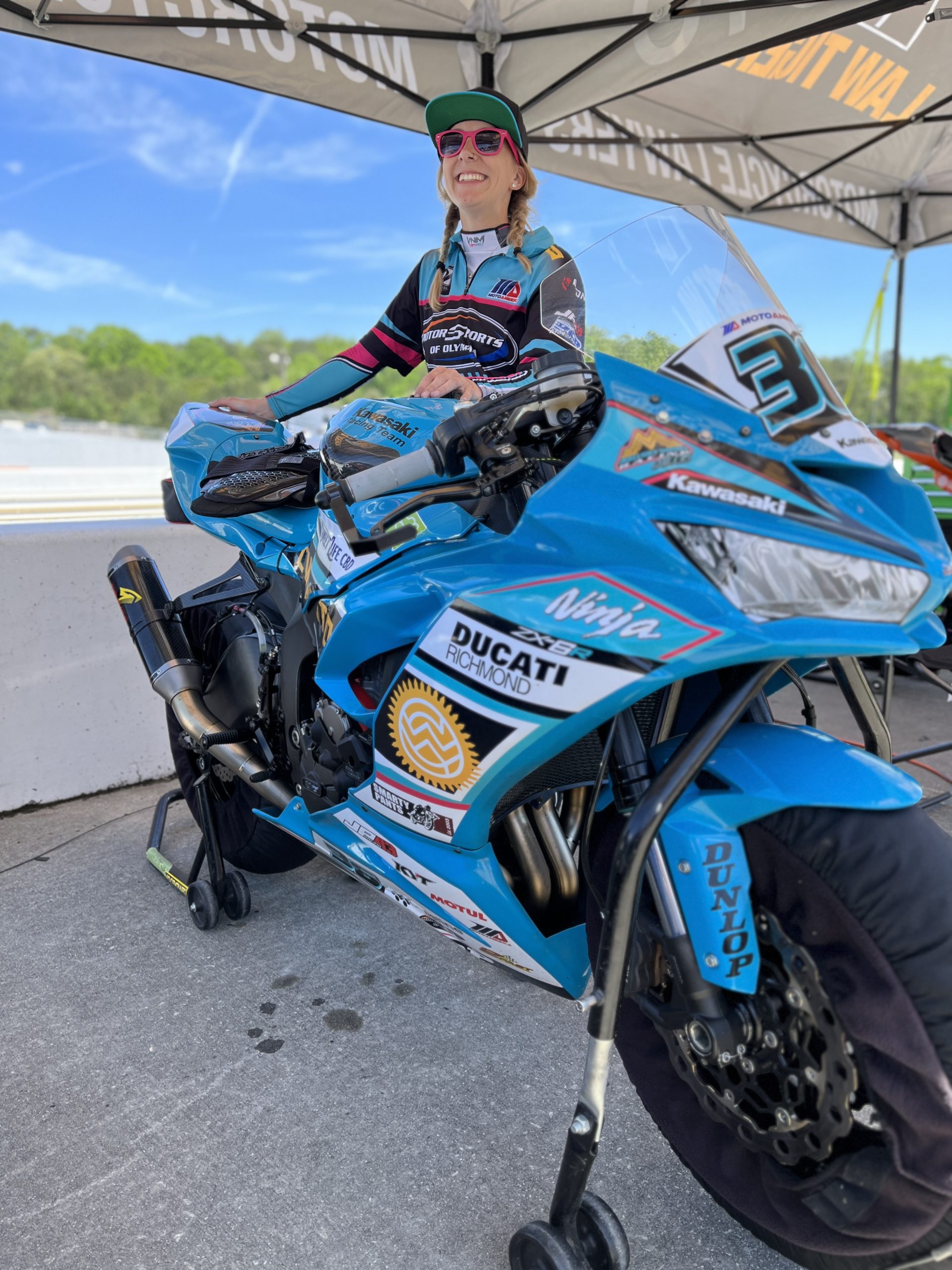
Q:
To the credit of your sponsor, Ducati Richmond, I thought it was quite interesting. I’ll just say it like this: you weren’t riding a Ducati in Supersport, but you were sponsored by Ducati Richmond.
Dobbs:
Yeah. She mostly sponsored the Super Hooligan program, and then, I put a sticker on my Supersport bike. It was so funny because so many people were like, “That’s not a Ducati.” I was like, “OK, well…” It was so funny.
Q:
For the rounds you raced in Super Hooligan, you also raced in Supersport at those rounds. So, when you raced in both classes, did the extra seat time help you?
Dobbs:
I don’t think the extra seat time really helped me that much. It was cool to have the extra seat time, but also stressful because the schedule is so packed that you’re running from one bike to the other, and you don’t have a lot of time to really debrief on what happened and where and how it’s going. Basically, once the morning starts, you’re full-gas all the way through the day. So, it was nice for the racetracks I hadn’t really ridden at, but really the only other track that I learned on both bikes was COTA. That weekend was crazy because the races were also back-to-back. There was no gap in-between them. So, my crew chief told me that, basically, I was insane for trying to do two bikes as a rookie.
Q:
As a rookie or for almost anybody. Jake Lewis is going to be racing in three classes this year. I don’t even know how he fits it all in his head.
Dobbs:
I don’t know, either. I do feel like switching from bike to bike was not as hard as I thought it would be. I feel like it was actually pretty easy. But it was just a matter of brain overload on some of the things. Like, I don’t really get to talk about anything that happened in the last race because I’ve got to go do the next one. So, as far as like an improvement in general as a racer, I don’t really know that that was something that happened, just because it was just so much to deal with in a weekend.
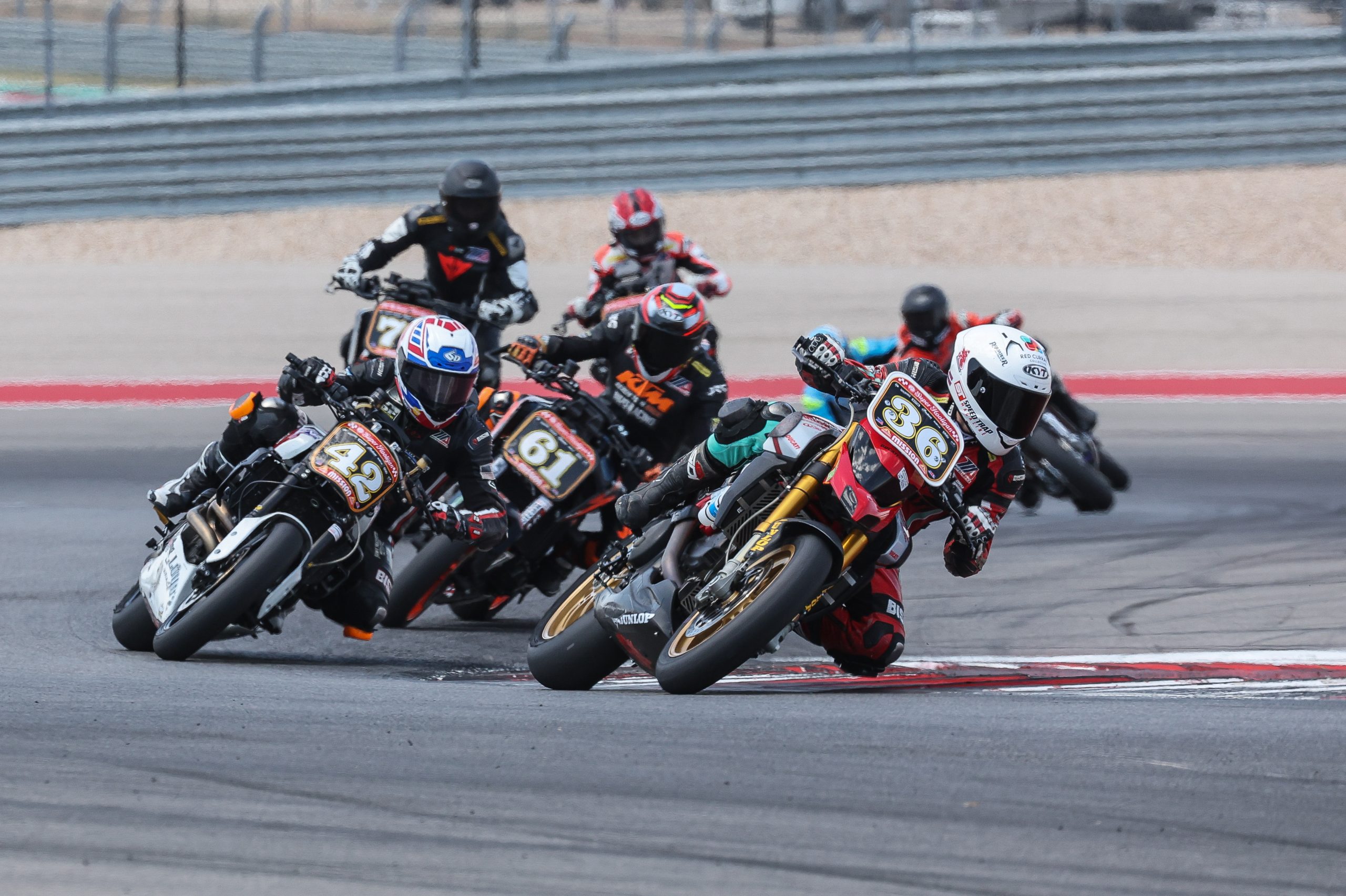
Q:
I think I might know the answer to this, but you might surprise me. You raced in both Supersport and Super Hooligan. Which class did you enjoy racing in the most?
Dobbs:
Honestly, Super Hooligan was a little chaotic, just because of the way the program for Super Hooligan works. But the results and everything that came with that and how well I did in Super Hooligan really made it like a highlight. In Supersport, I was doing it, and that’s what I wanted to do, and I really want to do better in Supersport. But it’s so much harder in Supersport, where Super Hooligan kind of gave me that little bit of a confidence boost. Like, I’m doing it, and I’m actually doing pretty well. I earned my first top-ten finish in Super Hooligan. Really, it was more fun and enjoyable to be closer to the front in Super Hooligan versus just running around in the back of the pack in Supersport.
Q:
What have you got planned for this year? What does the 2024 racing season look like for you?
Dobbs:
We just got confirmation two weeks ago that I’ve been accepted into the 2024 FIM Women’s Circuit Racing (WCR) World Championship. So, it’s their inaugural season. The FIM posted about it last year, with not a lot of details about the program or anything. Then they kind of shared some other details. It’s going to be on Yamaha YZF-R7s, and it’s six rounds in partnership with World Superbike, with two races at each of the six rounds. So, it will be running at the World Superbike events as another race class for the weekend. We’re doing that full-time this year. I think the plan is hopefully to also race at the Ridge round with MotoAmerica.
Q:
Any more MotoAmerica rounds besides that one at Ridge?
Dobbs:
I think that’s going to be the only one as of right now. We’re kind of focusing on the World Superbike stuff.
Q:
I’m familiar with the Yamaha R3 Cup, and the R7 Cup last year. It’s like a spec class. Are they identically prepared R7s? Do they prepare the bikes for you, and you focus on racing them?
Dobbs:
They prep all the bikes. They’re R7s with Yamaha GYT-R race kits, Pirelli tires, fuel, and technical support. They haven’t really shared a lot of details about what we can and cannot change on those things. I’m assuming we can change suspension settings and things like that, but I don’t really know what else we can change. So, it will be interesting to see what they allow us to tweak.
Q:
Do they have safety equipment suppliers? Are you using their helmets, their leathers, the whole bit?
Dobbs:
No. Helmets and leathers are on the riders.
Q:
So, you’re not all going to be branded the same then, even though you’re on the same bikes?
Dobbs:
Nope.
Q:
Did you have to apply for this? Were you selected for this? How did it come about?
Dobbs:
They posted an application. They said express your interest at this point, and send them an email. So, I sent them an email, and they sent me back the application. Then you submit the application, and they were like, “We’ll let you know in a couple months.” Basically, they said by February 15 whether or not you got into the program. So, it was a little bit ambiguous as to how it worked or what it was they were looking for. You still have to pay for the class, so there’s still an entry fee. That was basically all they told us, and then they were like, “We’ll let you know when you get accepted.”
Q:
Are you the only American who was selected?
Dobbs:
I’m not sure yet. They haven’t announced the rider list. I think they’re waiting for everyone to put in their deposit. I think they notified everybody, and then, they said you have seven days to get the deposit in, otherwise you lose your seat. So, I think they’re kind of waiting for that all to filter out. Then they’ll probably tell us. But as of right now, I haven’t heard of any other Americans in it.
Q:
Where are you with the deposit?
Dobbs:
We’re good to go. We got our deposit in. We’re ready for the season.
Q:
So, do you still need to be involved in any fundraising for this program?
Dobbs:
There’s always fundraising that has to happen, right?
Q:
Yeah, you can always use more money. You have to pay for your plane ticket and everything, right? And hotels and all that?
Dobbs:
Yup. So, you have to pay for all the logistics to get there, and they tell you to bring at least one crew member.
Q:
You will have somebody with you?
Dobbs:
Yeah.
Q:
Might I ask who it is?
Dobbs:
I’m bringing Don Beck with Superbike Underground.
Q:
One of my favorite road racers is two-time Stock 1000 Champion Andrew Lee, and I understand you and he have a little bit of a relationship.
Dobbs:
He’s coming.
Q:
I thought he might be.
Dobbs:
Andrew is coming in the capacity of rider coach. That’s what we listed him as. He’s my rider coach.
Q:
Did you guys actually meet through Jason Pridmore?
Dobbs:
Yes, that’s when I first met Andrew. I met him at Chuckwalla when I was down there, in the garage, when I got my first coaching from them a couple years ago.
Q:
Here’s another big question for you. I’ve got to make sure I frame this right. So, you’ve raced in MotoAmerica. You’ve done club racing. You coach. What you do and your road racing talent have nothing to do with being female. You’re on a level playing field. But this is an all-women’s spec racing series. Do you like that? Do you think, why are they singling out one gender? Where do you stand on that whole thing?
Dobbs:
It’s interesting. I have a lot of conversations with Melissa Paris and some legends, like Caroline Olsen. I had a conversation with Chloe (Lerin) when this program first came out. I think we’re all very much on the same page of the women’s world championship thing. We don’t necessarily feel that a women’s-only championship is necessary. I don’t necessarily know that it’s something like, “Oh, my gosh, we need this in the sport.” I think it’s great for motivating other women and kind of getting it out there. I am excited about it because it is an opportunity to get me in the World Superbike paddock, talking to people and building relationships and being around a different industry that I would never be able to get into otherwise. I wouldn’t have been thinking about going to Europe at all to race. Where would I have started? Where would I go? Who would I talk to? All of those things. But now I’m having conversations with a team in Europe about their plans for the season, and needing a rider for X, Y, Z. So, those kinds of conversations are now happening that I wouldn’t have had otherwise. My goals have changed. I’m like, “Maybe I could do world Supersport at some point.” There are so many more things that have opened because of this program that they’ve announced that I wouldn’t actually get to do any other way.
Q:
We know the situation with Kayla Yaakov. She had some notoriety from a very young age. Her involvement in the R3 Cup led to the R7 Cup. There’s some awareness of her over in Europe. So now, it’s going to be the same with you. You will be doing interviews in the World Superbike paddock, which is terrific. Where does it stand with your day job and doing this? Have you got this all worked out? Is it personal time off, vacation time? How are you doing it?
Dobbs:
I had a meeting two days ago with my manager, and we talked about how we’re going to plan it and everything. My work, who I’ve worked with for the past six or seven years, has really seen my racing career grow as I’ve gotten more and more involved, and they’ve been very understanding about me being gone or working remotely. We can work remotely. It’s just a little bit harder to coordinate on projects if I’m not in the office. So, we’re currently trying to figure it out, how that’s going to work, whether or not that’s me working remotely while I’m over there. I think my plan was to fly back and forth, but now maybe I’d consider living there for a couple months. So, we’re trying to figure out all the details on that. They’re working through it with me, and they’re super-excited for me to do it.
Q:
So, they really are supporting you with this. This isn’t anything where you’re trying to hold them at arm’s length. They embrace it. Do they understand what you do, and do they follow you?
Dobbs:
I think they have a little bit of an understanding about what I do. They have definitely been supportive of me for a long time. I don’t know that they really know how big this whole World Superbike thing is. I tried to tell them. World Superbike, in itself, sounds pretty cool, but the capacity and how big this actually is, it’s something that I think even I have a hard time grasping sometimes.
Q:
When you race at Ridge, do you know if you’ll race in Supersport or Super Hooligan, or will you race in both classes?
Dobbs:
I don’t know yet. Super Hooligan is kind of what we’re thinking. Supersport is a maybe because I might try to sell some of my Supersport stuff to help fund this season. But you know how racing goes. You’ve just got to kind of wait for those opportunities to come about or conversations to happen.
Q:
You have to keep your head on a swivel, that’s for sure. It’s incredible how things change. Is there anything else you might want to say? Anybody you want to mention, or anything more about what you’re doing this season?
Dobbs:
I will have some really cool news to share in a couple of months. I’m working on some stuff that I can’t share yet, but it will be really cool when we do a press release on it. That will be happening soon. I’m going to be in Europe a lot and, hopefully, like I said, here doing some MotoAmerica stuff, too. I also might try to help or support Andrew (Lee) with his ventures this season.
For the full 2024 MotoAmerica schedule and to purchase tickets for MotoAmerica events, click HERE
For information on how to watch the MotoAmerica series, click HERE




